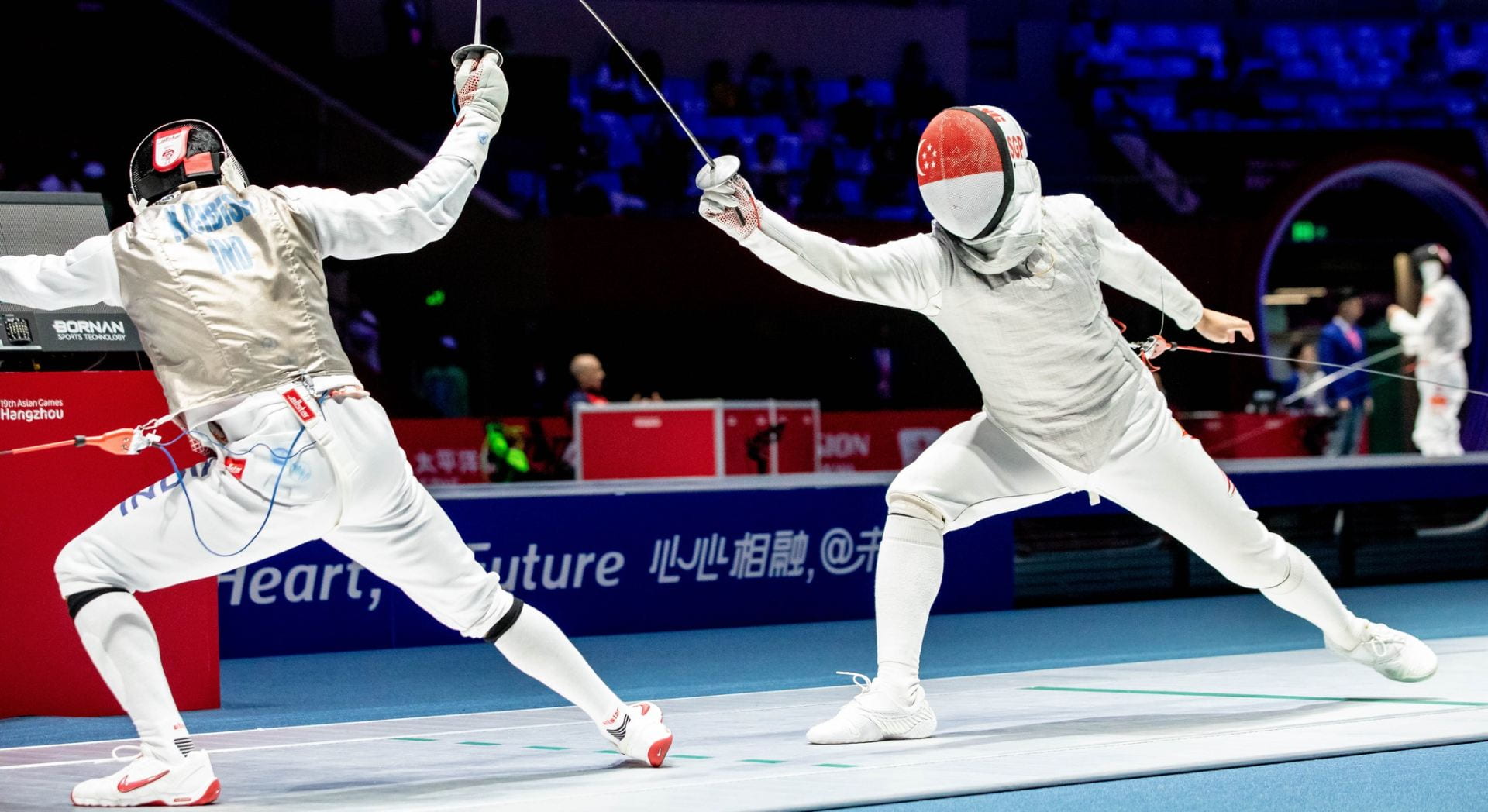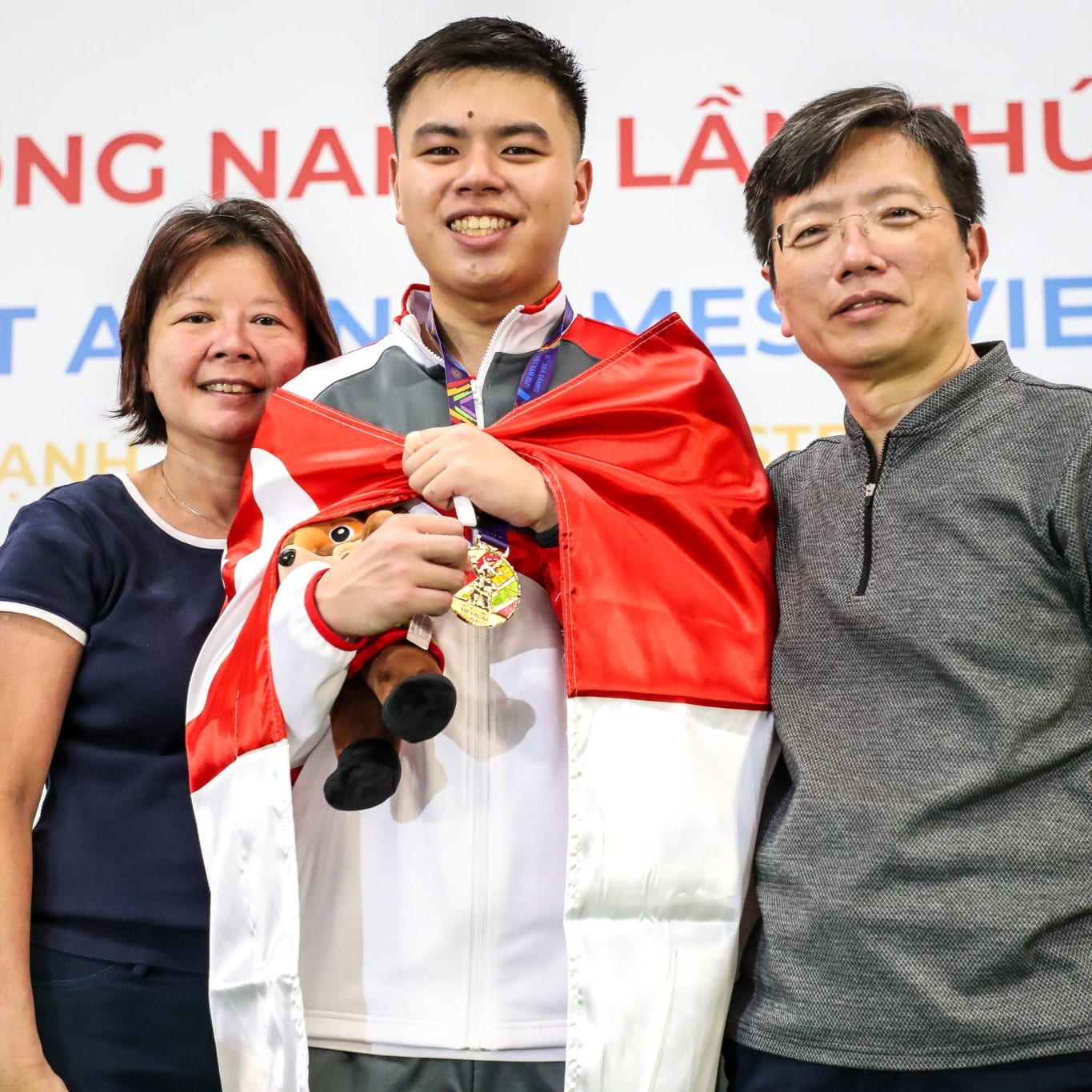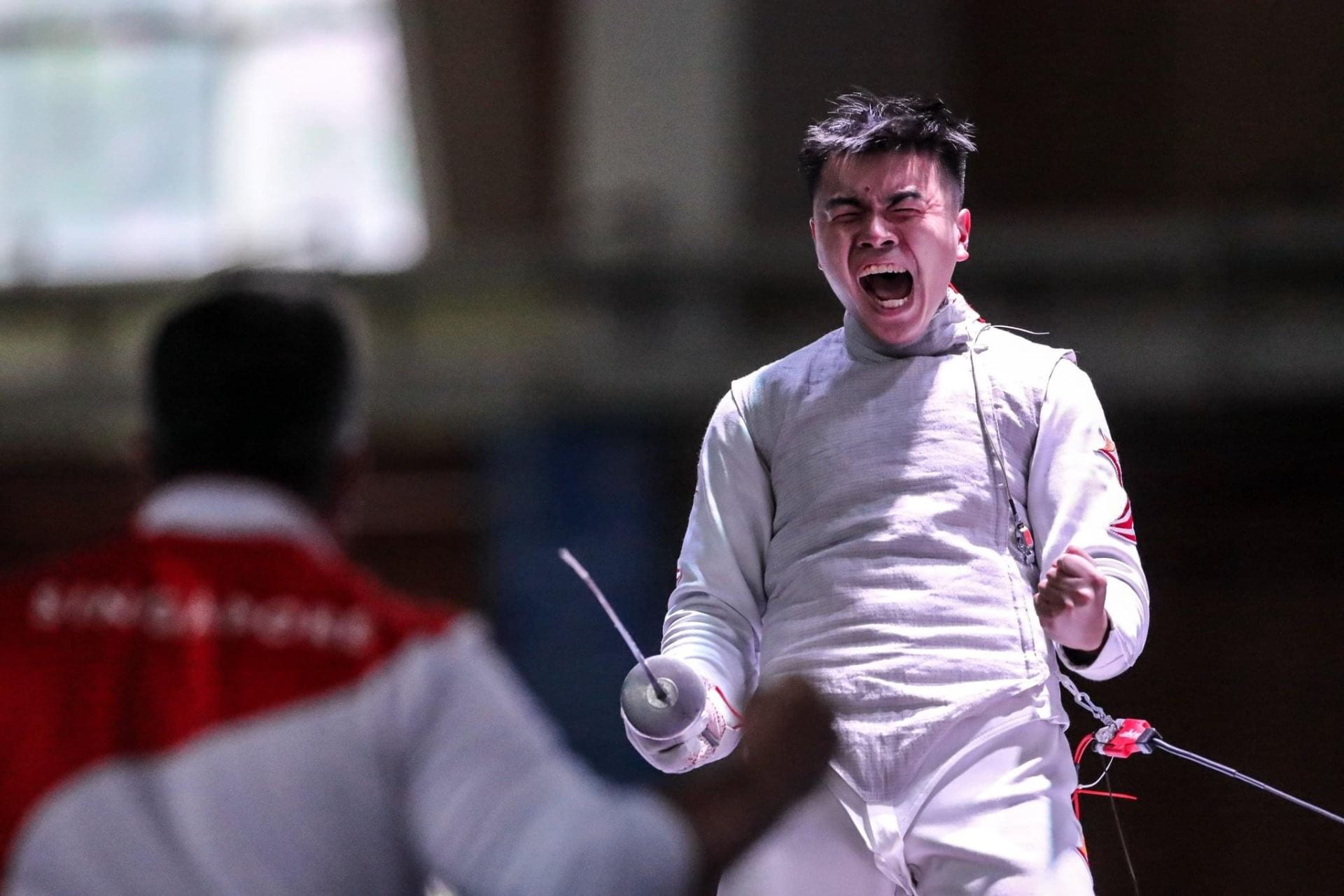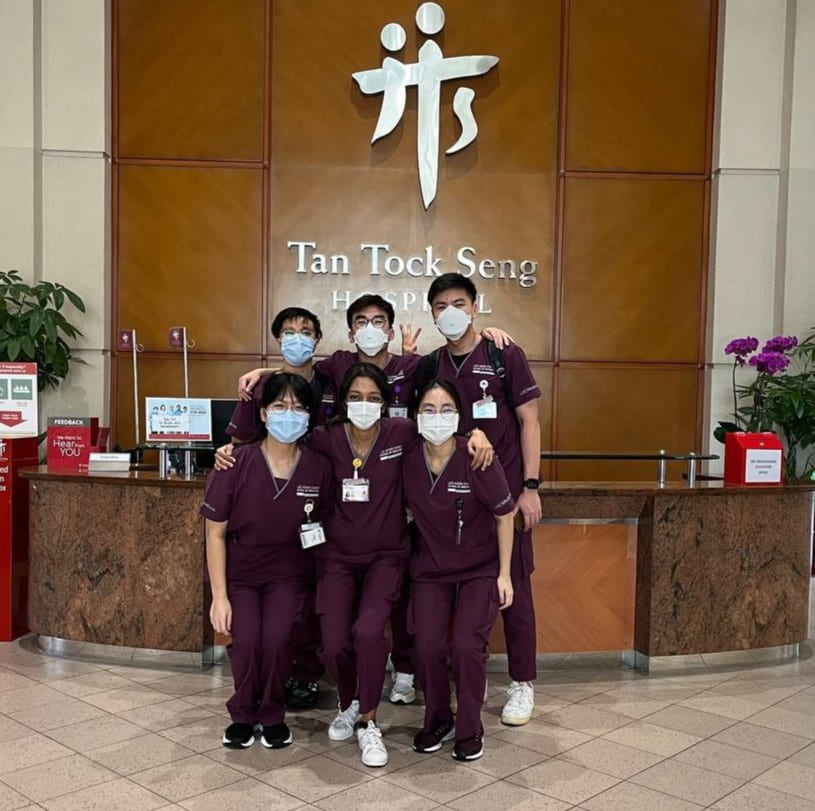Class of resilience
The COVID-19 outbreak stripped their early uni years of normalcy as Zoom classes took over and socialising became difficult. But in uncertainty and challenges come opportunities as these grads from the Class of 2024 show
by Tan Zi Jie / Illustration and animation by Vivian Lim
KEEP CALM AND PARRY ON

Jonathan competing at the Asian Games in Hangzhou last year.
Switching swiftly between sword and stethoscope, fresh medical grad Jonathan Au Eong’s five years at NTU has been nothing short of eventful.
Besides being on the frontlines of the COVID-19 pandemic as a medical student attached to a hospital, the 23-year-old also bagged a historic fencing gold in the Southeast Asian (SEA) Games in 2022. All after nearly burning out from the pandemic isolation in his second year.
Adapting to Zoom classes from in-person learning was the most challenging part of university life for the outgoing grad.
“Medicine requires a human touch. You need compassion and empathy to treat patients holistically. It’s just as important to know my patients’ background as it is their symptoms,” he says.
“So, learning medicine through a computer screen from 8am to 5pm every day, and not being able to interact with my lecturers, patients or friends, was very challenging. It took a toll on me,” he shares.


In his third year in NTU, Jonathan scored a fence-tastic gold medal at the SEA Games.
Aside from social interaction, Jonathan missed his stress relief outlet, fencing. As a national athlete, he usually trained five times a week, sparring with his teammates to unwind from his intense academic workload. But these occasions, too, turned into solitary Zoom sessions with his coach at the start of the pandemic.
Despite the difficulties, Jonathan pushed through with the support of his loved ones. As exams neared in their second year, he and his friends held studying sessions on messaging service Discord to motivate one another.
When he returned to the hospital wards for clinical studies in late 2021 as a third-year student, Jonathan “rediscovered his joy for medicine”.
“LKCMedicine’s mission to train ‘doctors you and I would like to care for us’ resonates with me. Through my classes, clinical exposure and these personal challenges, I’ve grown to become a more understanding, compassionate and loving doctor. I will carry these lessons with me as I embark on my medical career.”
The doctor who duels
Jonathan’s third year in NTU’s Lee Kong Chian School of Medicine (LKCMedicine) was “challenging and character-building” for him, but also especially fulfilling as he became the first Singaporean fencer to win a gold in the men’s individual foil event at the SEA Games.
He was supposed to compete in November 2021, but the games were pushed back due to the high number of COVID-19 cases in the host country, Vietnam. It was “demoralising”, but Jonathan continued to train.
When the postponed match in May 2022 clashed with his clinical postings, LKCMedicine brought forward his in-person dermatology clinical sessions at the National Skin Centre so he could compete in Hanoi.
“Winning the SEA Games gold was a very proud moment for me. The victory was made sweeter because of the tough times that came before it – from competition delays to juggling training and lessons with clinical postings, and persevering through the pandemic,” he reflects.
Besides fencing his way to gold while in university, Jonathan published 11 medical papers on topics such as the effect of COVID-19 on myopia and a report on trigger finger in an adolescent fencer.
Fresh out of med school, he is a houseman at Singapore General Hospital. National Service comes next, after which he hopes to apply for specialty training in a surgical discipline.
Gowns, goggles & grit on the pandemic frontline

Learning on the frontlines of the COVID-19 pandemic: Jonathan’s first clinical posting at Tan Tock Seng Hospital was gruelling yet memorable.
On the second day of his first clinical posting at Tan Tock Seng Hospital in August 2021, medical student Jonathan Au Eong got an alert. He had come into close contact with a COVID-19 patient while examining patients in the general medicine ward and needed an immediate swab test.
“It was quite frightening. At that point, COVID-19 was not fully understood or treated as endemic yet. I worried about quarantine disrupting my lessons and clinical postings,” he says.
Luckily, Jonathan and two classmates in the same posting tested negative and resumed their third-year studies, a mix of hospital attachments and tutorials at NTU’s LKCMedicine.
To protect patients and students during the pandemic, the school limited students’ exposure to patients in lower-risk wards and increased the number of simulated patient practice sessions.
For Jonathan, his hospital attachment during the pandemic was “gruelling and memorable”.
He donned stifling personal protective equipment (PPE) – a long surgical gown over medical scrubs, goggles and an N95 mask – to learn how to physically examine patients and pick up signs of potential health issues. Each ward round with the hospital doctors lasted up to four hours.
“It was hard to concentrate while sweating and breathing harder in full PPE during ward rounds. Once, my N95 mask was so tight, I ended up with bruises on my face,” he recalls.
“But my body got used to wearing PPE eventually. After all, it’s in the best interests of our patients and ourselves to take these precautions. My experiences have made me appreciate the importance of a prepared healthcare system.”
This story was published in the Jul-Aug 2024 issue of HEY!. To read it and other stories from this issue in print, click here.



/pix58-ig_manwithhisleica.tmb-listing.jpg?Culture=en&sfvrsn=f2db51f1_1)
/hey59-tomorrowland-3-400x250.tmb-listing.png?Culture=en&sfvrsn=8f0f380a_1)
